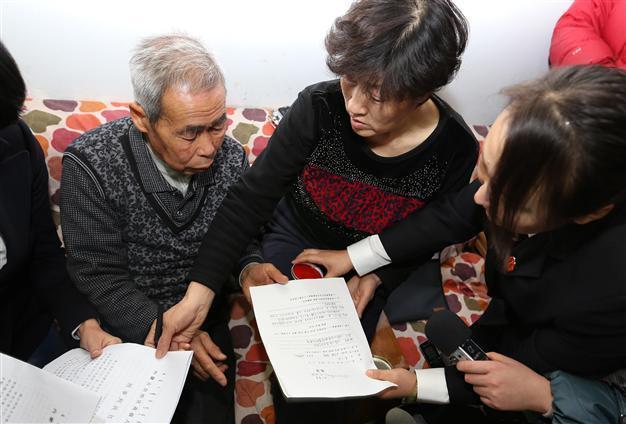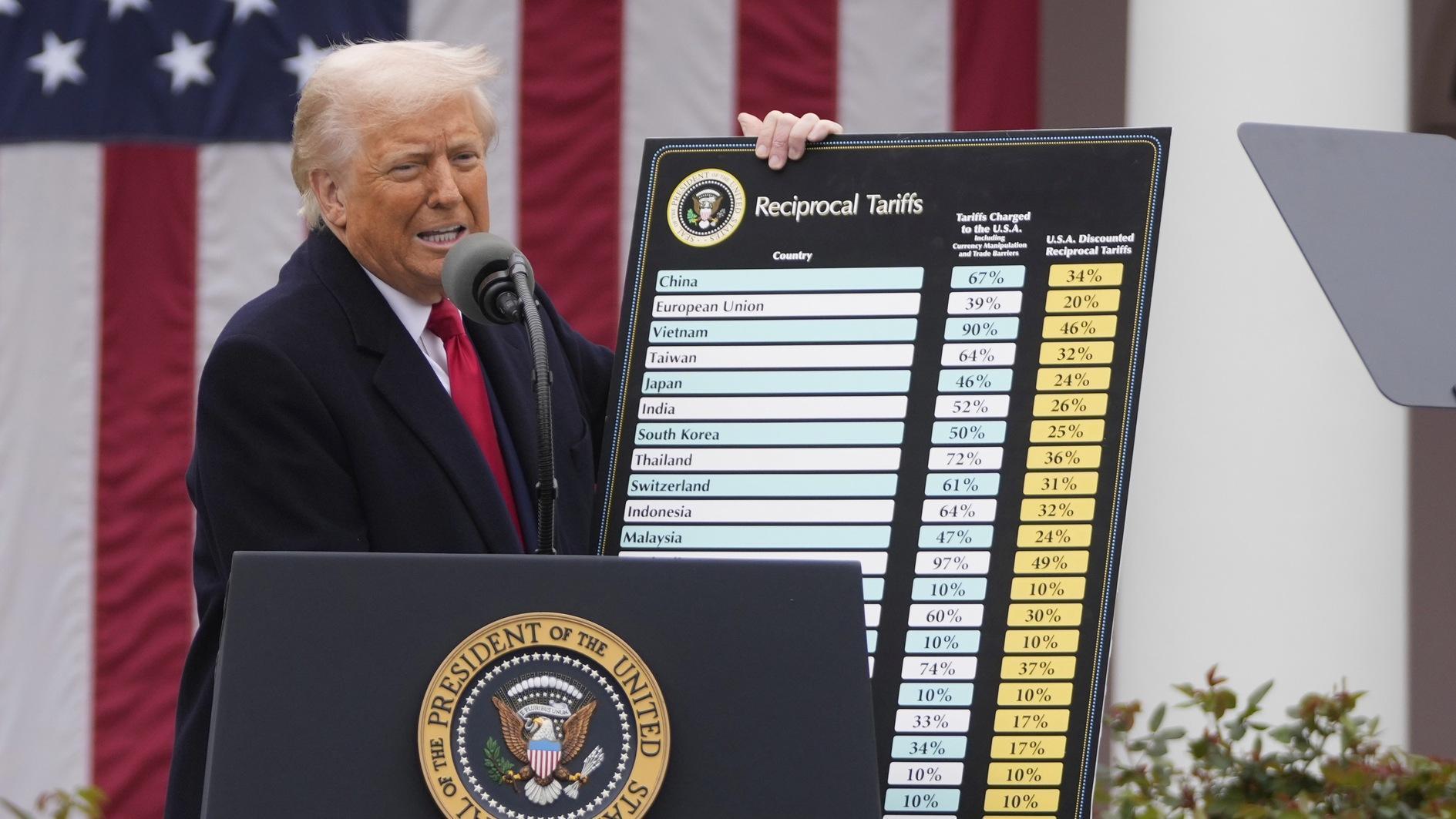Executed Chinese teenager found innocent 18 years on
BEIJING – Agence France-Presse

The judge of the higher people's court delivers retrial files to Hugjiltu's parents (C) in Hohhot, northern China's Inner Mongolia autonomous region on December 15, 2014. AFP Photo
A Chinese teenager executed after being convicted of murder and rape 18 years ago was declared innocent by a court Dec. 15, in a rare overturning of a wrongful conviction.The 18-year-old, named Hugjiltu and also known as Qoysiletu, was found guilty and put to death in Inner Mongolia in 1996, but doubt was cast on the verdict when another man confessed to the crime in 2005.
"The Inner Mongolia Higher People's Court finds Hugjiltu's original guilty verdict... is not consistent with the facts and there is insufficient evidence," the court in Hohhot said in a statement.
"Hugjiltu is found not guilty."
The retrial comes after a pledge by leaders of the ruling Communist Party to strengthen the rule of law "with Chinese characteristics" -- a concept experts caution refers to greater central control over the courts rather than judicial independence.
The court's deputy president gave Hugjiltu's parents compensation of 30,000 yuan ($4,850), according to the official Xinhua News Agency -- although the money was a personal donation by the head of the court, it added, rather than an official payment by the institution.
Images on social media showed the deputy president apologising to Hugjiltu's now elderly parents.
"This is an amazing thing the court did, to admit that they were wrong," said Wang Gongyi, deputy director of the research institute of the Ministry of Justice.
"It also sends a clear message to the police and prosecutors around the country: if there's not enough evidence, don't impose wrongful convictions," he told AFP.
"In the future, this case will be singled out as what not to do and will influence the entire legal system."
Police in Hohhot, where the crime took place, said they opened an investigation into the officers responsible for the original case, according to the Legal Evening News.
The regional court said Hugjiltu's confession did not match the autopsy report as well as being inconsistent with "other evidence", and that DNA evidence presented at the trial did not definitively connect him to the crime.
China's courts, controlled by the ruling Communist Party, have a near-100 percent conviction rate in criminal cases and confessions extracted under dubious conditions are commonplace.
In Hugjiltu's case, authorities interrogated the teenager for 48 hours, after which he confessed to having raped and choked the woman in the toilet of a textile factory, the state-run China Daily newspaper reported in November. He was executed 61 days after the woman's death.
Hugjiltu's family tried for nearly a decade to prove his innocence, according to reports, and the Higher People's Court officially began a retrial in November.
Many on social media decried what they saw as insufficient compensation for such a grave miscarriage of justice, with one asking: "Is 30,000 yuan really enough to buy the life of a family member?" Others demanded the court officials and police responsible for the original conviction be held responsible.
"We must bring all those morally corrupt public security officers to justice," another user said on Sina Weibo, a Twitter-like microblogging platform.
China executes more people than the rest of the world combined, according to rights groups. The country put an estimated 2,400 people to death last year.
China has occasionally exonerated wrongfully executed convicts after others came forward to confess their crimes, or in some cases because the supposed murder victim was later found alive.
In one case, police claimed a dead body was that of a woman who had recently disappeared and charged Teng Xingshan with her murder. Teng was executed by firing squad in 1989, but in 1993 the supposedly murdered woman returned to the village saying she had been kidnapped.
Teng was exonerated of all crimes in 2005.
Several other high-profile wrongful convictions have sparked public outrage in recent years.
Last year, a man who served 17 years in prison for killing his wife was declared innocent by an appeals court in the eastern province of Anhui.
A few months earlier two men who had been sentenced to death and life in prison in 2004 for the alleged rape of a 17-year-old girl were also acquitted.
Doubts have been raised about several high-profile death penalty cases in the US. But the Innocence Project, a group advocating for those it says are wrongfully convicted, does not highlight on its website any instances of executed people later having their convictions quashed.
















